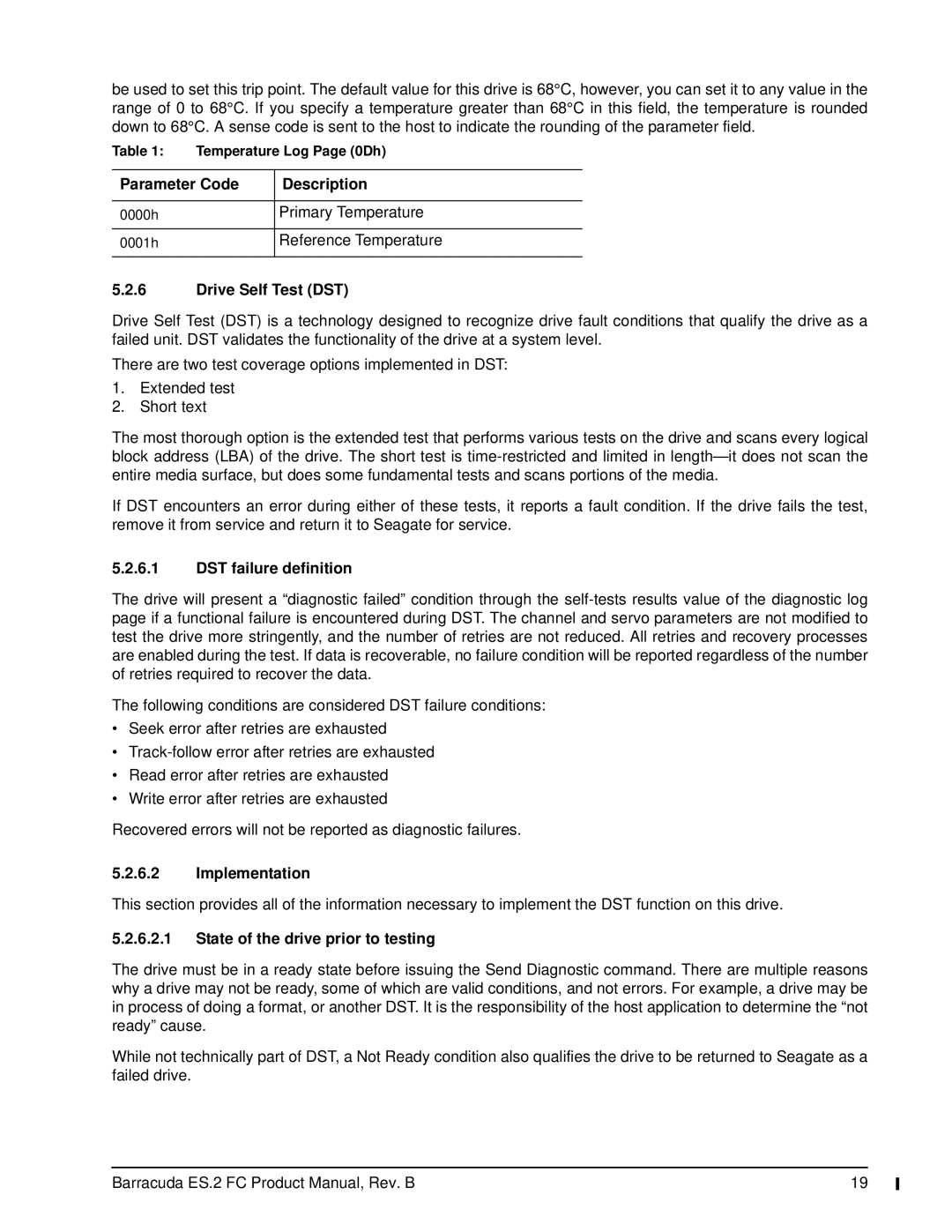ST31000640FC, ES.2 FC specifications
The Seagate ES.2 FC, model ST31000640FC, is a high-performance hard drive designed specifically for enterprise environments. This drive is engineered to provide reliable and efficient data storage, catering to the demands of critical business applications, data centers, and server infrastructures.One of the standout features of the ST31000640FC is its large storage capacity. With a 1TB capacity, it offers ample space for storing vast amounts of data, making it an excellent choice for businesses that require extensive storage solutions. This capacity enables the drive to support extensive databases, applications, and virtualized environments without compromising performance.
The Seagate ES.2 FC utilizes Fibre Channel (FC) interface technology, which is known for its high-speed data transfer capabilities. Operating at 4 Gbps, this interface facilitates faster communication between the drive and the server, significantly enhancing overall system performance. The Fibre Channel technology also improves data integrity through its ability to manage large amounts of data traffic efficiently.
In terms of performance specifications, the ST31000640FC boasts a rotational speed of 7200 RPM and a sustained data transfer rate that offers quick access to information. Additionally, it features an advanced caching mechanism that optimizes read and write operations, ensuring rapid data retrieval and improved application responsiveness.
The drive's advanced error recovery and data protection mechanisms, such as the Seagate PowerTrim technology, work to minimize downtime and data loss. This is particularly crucial for enterprise applications that demand high availability and reliability. PowerTrim intelligently manages the drive’s internal resources to enhance performance and durability.
Another essential characteristic of the Seagate ES.2 FC is its enterprise-grade reliability. It boasts a mean time between failures (MTBF) rating of 1.2 million hours, indicating its robustness for continuous operation in demanding environments. Furthermore, it is designed to operate in a range of temperatures, ensuring consistent performance across various operational conditions.
Lastly, the Seagate ES.2 FC incorporates vibration tolerance and advanced acoustic performance features, which help to reduce noise and ensure quieter operation in data center environments. This makes it an attractive option for enterprises looking to optimize their infrastructure while minimizing disturbances.
In summary, the Seagate ES.2 FC, ST31000640FC hard drive is an excellent choice for enterprises seeking a balance of large storage capacity, high-speed performance, and reliability in a Fibre Channel environment. With its array of technologies and robust characteristics, it meets the rigorous demands of modern business storage needs.
